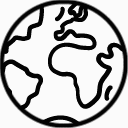
Many of the countries with high biodiversity also have a very young population. Youth can make up 50-70% of the population. Many of the youth are curious and dedicated. Soon they will design our common future. They already have influence over development here and now. The ability of these young people to manage natural resources more sustainably is of vital importance. The youth also have the right to have a voice and influence the future.
Recommendations
- Once motivated, students can contribute immensely to sustainable development locally. It is important to inspire them and support them with the requisite knowledge. Then great things can happen!
- Youth are a dynamic group with varying needs and practices. Investment in youth has to be continuous over many years to bring in people from different age groups.
- Youth, who comprise the larger part of the population in Africa, are very keen to improve their lives. They just need the capacity and initial support where necessary.
A youth group in Masaka, Uganda, has engaged the local government to address pollution in the Nabajuzzi Wetland – a Ramsar site where a local leather tanning factory was depositing its effluents, affecting the water ecosystem and causing a lot of air pollution. The factory has since stopped discharging its untreated waste into the wetland.
The Kirumi Youth Group in Musoma, Tanzania, is making their own hand made wind mills and selling them to farmers and other members in the community as an innovation for irrigating their farms. The youth groups in Kenya have formed a Youth Network made up of 11 youth groups within the Lake Victoria Basin. The youth groups in Uganda formed the Katonga River Basin Youth Network, made up of youth groups from upstream sites in Kyenjojo and Kyegegwa and in downstream sites in the Masaka region.

East Africa
1 500 youth in East Africa have received training on governance; leadership; policy advocacy; youth rights; climate change adaptation; and on setting up sustainable, eco-friendly small and medium enterprises (SMEs). We have developed A Pan African Youth Strategy on Learning for Sustainability. Structured work among young people led to a Youth Conference with representatives from 35 African countries who agreed on following framework: Youth as change agents, youth engagement and governance, livelihood and career building, knowledge and skill building activities.
The youth groups in Rwanda had their activities mainstreamed in the monthly National Day for Community Work known as Umuganda. The youth group located at Lukaya Town Council in Uganda has engaged the local village, which is in the process of being transformed into an ESD village, in a cleanup awareness campaign where they have cleaned the town, which used to have a lot of plastic papers.
The Kirumi Youth Group in Musoma, Tanzania, made their own windmills, which they use to carry out irrigation of their watermelon farming project. Four youth groups in Rwanda came together and planted around 50,000 trees at a bare area in the Kirehe District with the purpose of increasing the green cover in the district. The profits from the sustainable harvest of the trees will go to the youth groups. The Cojega and Koisibu Youth Groups in Bugesera, and the Kivefaco Youth Group in the Kirehe District in Rwanda are all engaged in farming, using greenhouses that use integrated pest control that doesn´t involve use of pesticides. The Kajulu Youth Group in Kisumu, Kenya, is engaged in fish farming, which is helping the group earn income. They have also carried out re-afforestation of the surrounding Kajulu hills with 4000 trees.
Cameroon
Five youth clusters have been created and trained in the Bakossi landscape, and they have produced cluster business plans. They have also organized themselves in an environmental campaign to address a waste management issue near the hotel where they lodged in Nkongsamba.
As a demonstration of the skills acquired from their training in environmental advocacy, the youth were engaged in a mock public debate on two key environmental issues – deforestation and poaching – with an impressive impact on the audience.
Madagascar
In Madagascar we have developed a strategy document on Youth empowerment for sustainable development and integrated its main findings into the National Youth Policy paper. We have also created and supported three youth networks, which regularly produce communication activities such as online debates on Facebook and broadcasts radio twice a week.
Dela gärna:
Senast ändrad 15/01/19

